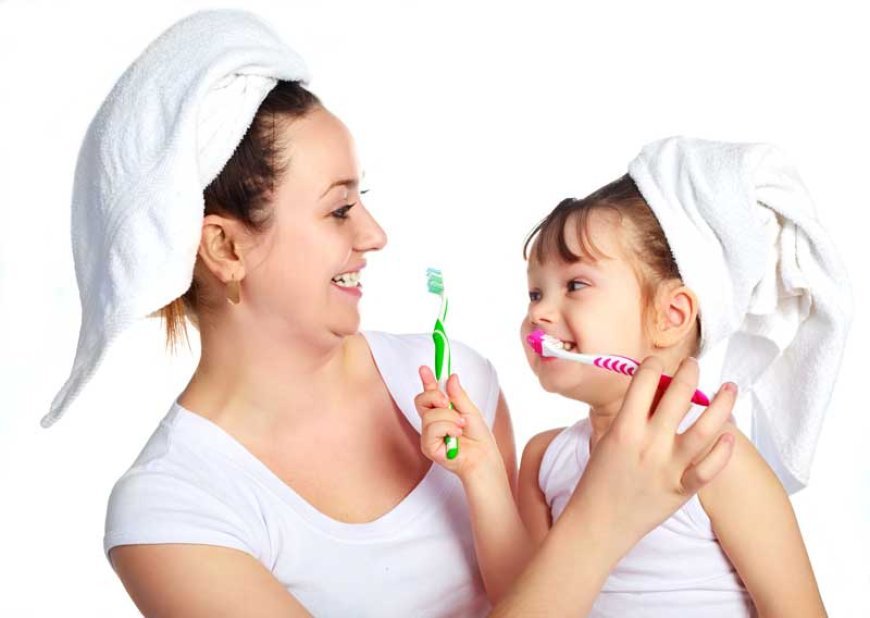The Guide to Oral Hygiene : Tips for a Healthier Smile
Maintaining good oral hygiene is vital for achieving and preserving a healthy, attractive smile. By following the tips outlined in this guide—such as brushing and flossing regularly, using mouthwash, maintaining a healthy diet, avoiding tobacco, and visiting your dentist—you can ensure optimal oral health. Remember that good oral hygiene practices not only enhance your smile but also contribute to your overall well-being
The Ultimate Guide to Oral Hygiene: Tips for a Healthier Smile
Introduction
Oral hygiene is essential for maintaining not only a beautiful smile but also overall health. Good oral care practices help prevent dental problems such as cavities, gum disease, and bad breath. This comprehensive guide covers essential tips and practices for achieving optimal oral hygiene and keeping your teeth and gums healthy.
1. Brush Your Teeth Properly
Brushing your teeth is the cornerstone of oral hygiene:
- Frequency: Brush your teeth at least twice a day—morning and night. If possible, brush after each meal to remove food particles and plaque.
- Technique: Use a soft-bristled toothbrush and fluoride toothpaste. Brush in gentle, circular motions to clean all surfaces of your teeth and gums. Avoid brushing too hard, as this can damage your enamel and gums.
- Duration: Brush for at least two minutes to ensure thorough cleaning. You can use a timer or a toothbrush with a built-in timer to keep track.
2. Floss Daily
Flossing is crucial for removing plaque and food particles from between your teeth and below the gumline:
- Technique: Use about 18 inches of floss and wrap it around your fingers for control. Gently slide the floss between your teeth using a back-and-forth motion. Curve the floss around each tooth and move it up and down to clean the sides.
- Frequency: Floss once a day, preferably before brushing, to ensure that any debris is removed before brushing your teeth.
3. Use Mouthwash
Mouthwash can help freshen breath and kill bacteria:
- Choose the Right Mouthwash: Select an antimicrobial or fluoride mouthwash based on your needs. Antimicrobial mouthwashes help reduce bacteria, while fluoride mouthwashes strengthen tooth enamel.
- Usage: Swish the mouthwash around your mouth for 30 seconds to one minute. Follow the product's instructions and avoid eating or drinking for at least 30 minutes after using mouthwash.
4. Maintain a Healthy Diet
What you eat affects your oral health:
- Limit Sugary Foods: Reduce your intake of sugary and acidic foods, which can lead to tooth decay and enamel erosion. Opt for healthier snacks like fruits, vegetables, and nuts.
- Drink Water: Water helps wash away food particles and bacteria. Drinking water throughout the day helps keep your mouth hydrated and supports overall oral health.
5. Avoid Tobacco Products
Tobacco use can severely impact your oral health:
- Risks: Smoking and chewing tobacco increase your risk of gum disease, tooth loss, and oral cancer. They can also cause bad breath and stain your teeth.
- Quitting: If you use tobacco products, consider quitting to improve your oral and overall health. Seek support from healthcare professionals if needed.
6. Visit Your Dentist Regularly
Regular dental check-ups are essential for maintaining oral health:
- Frequency: Schedule dental visits every six months for a professional cleaning and examination. Your dentist can identify and address potential issues before they become serious.
- Preventive Care: During your visits, your dentist will perform a thorough cleaning to remove plaque and tartar buildup and check for signs of dental problems.
7. Take Care of Your Gums
Healthy gums are crucial for overall oral health:
- Brushing and Flossing: Brush and floss daily to prevent gum disease. Pay special attention to the area where your gums meet your teeth.
- Symptoms to Watch For: Be aware of symptoms like swollen, bleeding, or tender gums, which can indicate gum disease. Contact your dentist if you experience these symptoms.
8. Use Dental Products Wisely
Select and use dental products that support your oral health:
- Toothbrushes: Replace your toothbrush or toothbrush head every three to four months or sooner if the bristles are frayed. An electric toothbrush can also be effective for thorough cleaning.
- Toothpaste: Use fluoride toothpaste to help strengthen tooth enamel and prevent decay. If you have specific oral health concerns, consult your dentist for product recommendations.
9. Practice Good Oral Care for Children
Children need oral care just as much as adults:
- Start Early: Begin brushing your child’s teeth as soon as they appear. Use a small, soft-bristled toothbrush and a tiny amount of fluoride toothpaste.
- Teach Proper Techniques: As your child grows, teach them how to brush and floss properly. Encourage them to maintain good oral hygiene habits from a young age.
10. Address Oral Health Issues Promptly
Timely intervention can prevent minor issues from becoming major problems:
- Watch for Changes: Be alert to any changes in your oral health, such as tooth sensitivity, pain, or unusual symptoms. Address these issues promptly to avoid complications.
- Seek Professional Advice: If you experience persistent oral health problems, consult your dentist for an accurate diagnosis and appropriate treatment.
What's Your Reaction?








